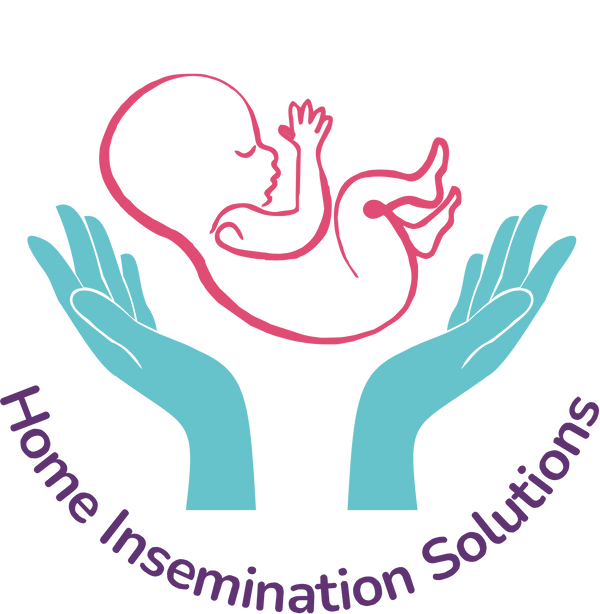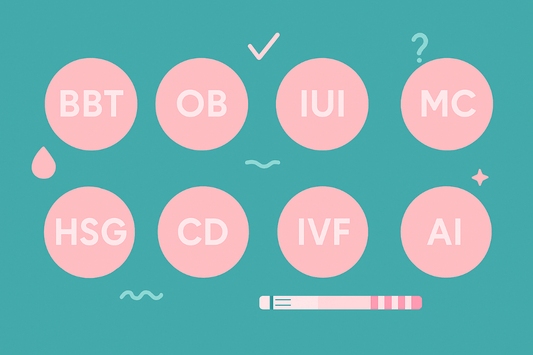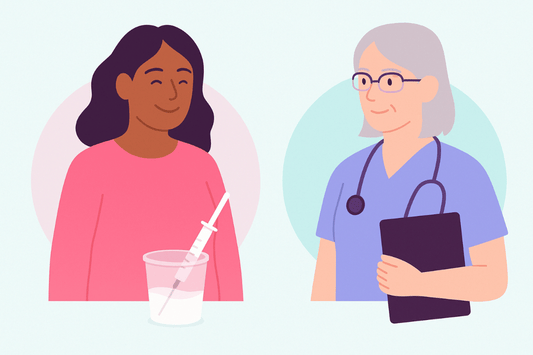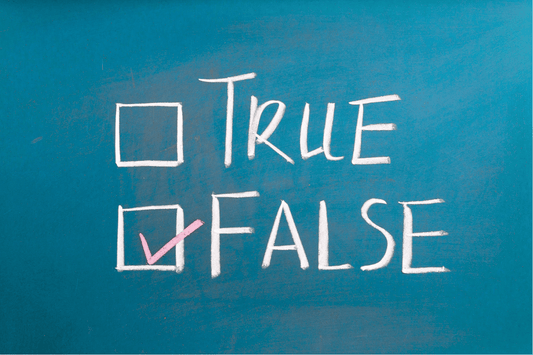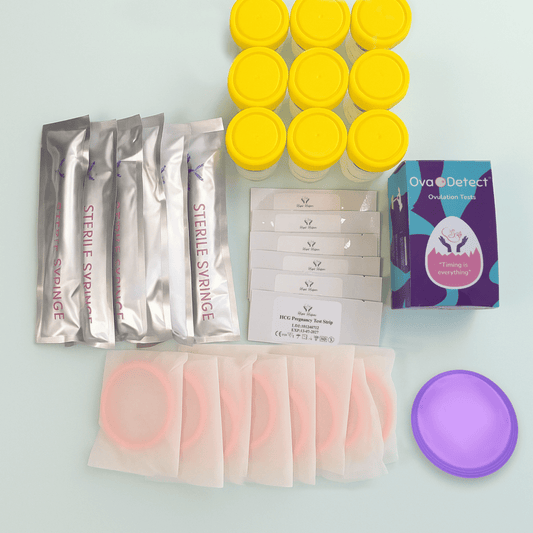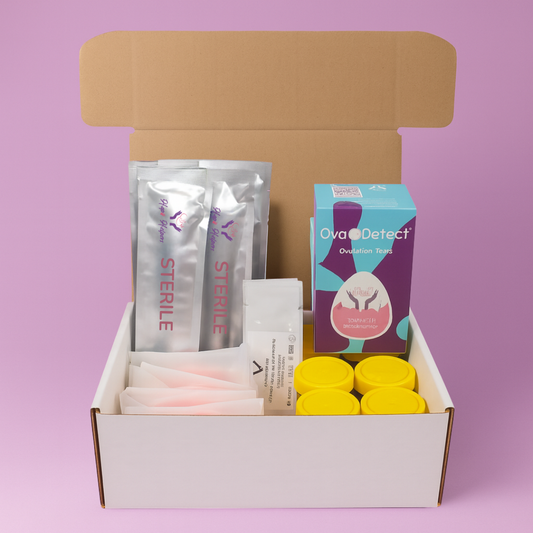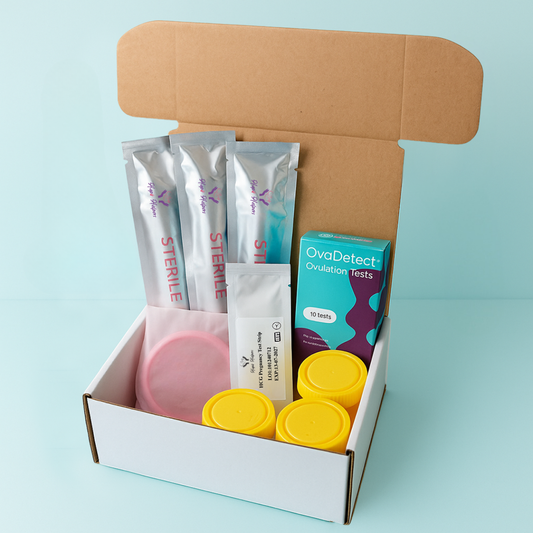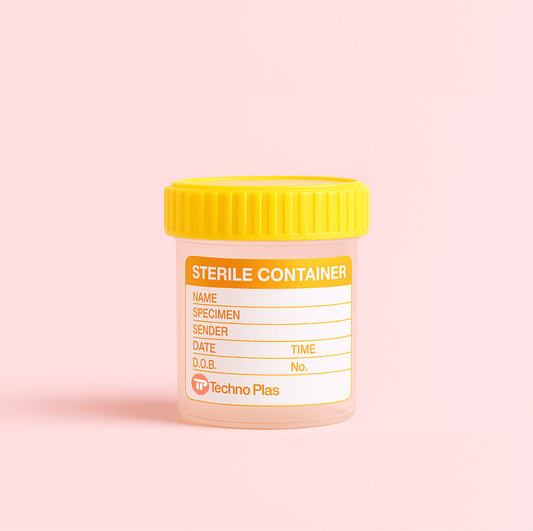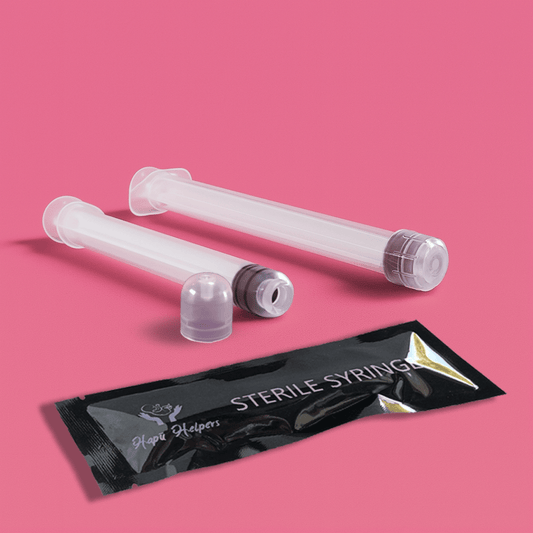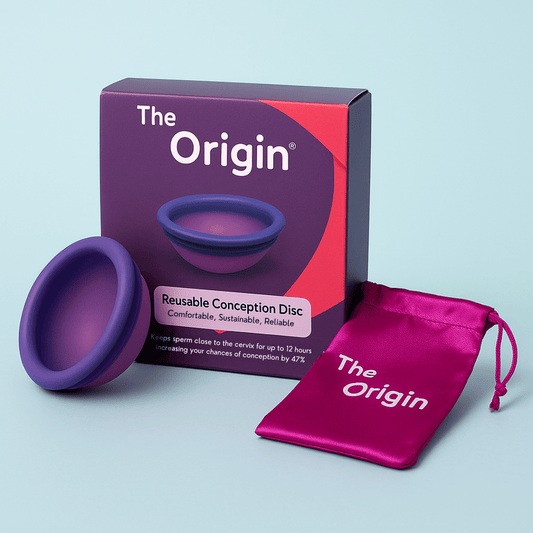Why Choose At-Home Insemination
Trying to conceive but not quite ready for the clinic? You’re not alone. More people are turning to at-home insemination as a private, empowering, and affordable alternative on their path to parenthood.

What is At-Home Insemination?
Artificial insemination (AI) is when sperm is inserted into a person’s body without intercourse; it is done in a clinic or at home. When done at home, we refer to it as at-home insemination. With an increasing rate of infertility and the changes in family dynamics, at-home insemination has become a viable and accessible option for individuals or couples looking to expand their families. It offers a more private and cost-effective way to navigate the path to parenthood, all while retaining control and comfort in the process.
Why choose at-home insemination?
With an increasing rate of infertility and the changes in family dynamics, it’s become common these days for people to turn to AI; same-sex couples, single women, and heterosexual couples will use AI if they struggle naturally. As a result, at-home insemination has become a popular choice, and below is a list of reasons why.
* Please note that clinics are still very important for those who struggle with infertility due to medical problems, and for those who do not have success with at-home insemination, whether by AI or NI (Natural Insemination).
Sperm donor shortage
There is a shortage of sperm donors in South Africa. This is driven by increased demand for donor sperm due to rising infertility rates and a limited number of men willing to donate. The waiting list is long and is continuously rising. Unless, of course, you have your own donor, then there is no waitlist.
Cost of IVF and IUI in South Africa
In South Africa, the cost of an IVF (In Vitro Fertilisation) cycle typically ranges between R65,000 and R100,000, though it can be higher depending on individual circumstances and the clinic selected. Factors such as the use of donor eggs or sperm, additional procedures, and the specific treatment protocol recommended by the fertility specialist can all influence the final cost.
For an IUI (Intrauterine Insemination) procedure, the cost is approximately R9,500. This excludes the cost of medication and, if applicable, donor sperm. It’s important to note that IUI is usually part of a broader treatment plan, and the overall cost may vary depending on several factors, such as whether a sperm wash is required and whether the sperm is provided by the male partner or a donor.
Medical Aid Support
Some medical aid providers offer contributions toward fertility treatments like IVF or IUI, but this depends on the specific plan you have. For instance, Discovery Medical Scheme offers an Assisted Reproductive Therapy Benefit.
The Assisted Reproductive Therapy Benefit provides cover for a defined list of female infertility procedures and treatments up to a Rand limit of R135,000 for each person, each year, subject to specific rules. Cover is up to 75% of the Discovery Health Rate (DHR) when you use an accredited facility in our network.
Cover is up to 75% of the agreed Discovery Health Rate up to a limit of R135,000 per year when you use an accredited facility in their network. You will have to pay a co-payment of 25% of the costs for assisted reproductive therapy, any amount in excess of the Discovery Health Rate, and any other costs not covered by the benefit. Discovery pays up to two cycles of assisted reproductive therapy (ART), including egg donated cycles, if you are 25 to 39 years old, per year. They pay for one cycle from the age of 40 up to and including 42 years of age, per year. If you are 43 years of age up to and including 50 years of age, they will cover one egg donated IVF cycle per year, including the egg donor matching fee. The cost associated with egg donor agencies is not covered under the benefit and may result in a higher co-payment. Read the full benefit here
LGBTQ+ Discrimination in Fertility Treatment
Throughout the fertility journey, many individuals who identify outside the traditional gender binary and same-sex couples often feel more comfortable pursuing at-home insemination with their donor, rather than going through a clinic where they may face judgment or intrusive questioning. There is a sentiment that fertility clinics are still lagging behind in effectively supporting and accommodating the LGBTQ+ community.

If you don't know where to start, talking with a TTC consultant can help! Book a FREE 15-minute virtual consult today!
Book a TTC consultation
